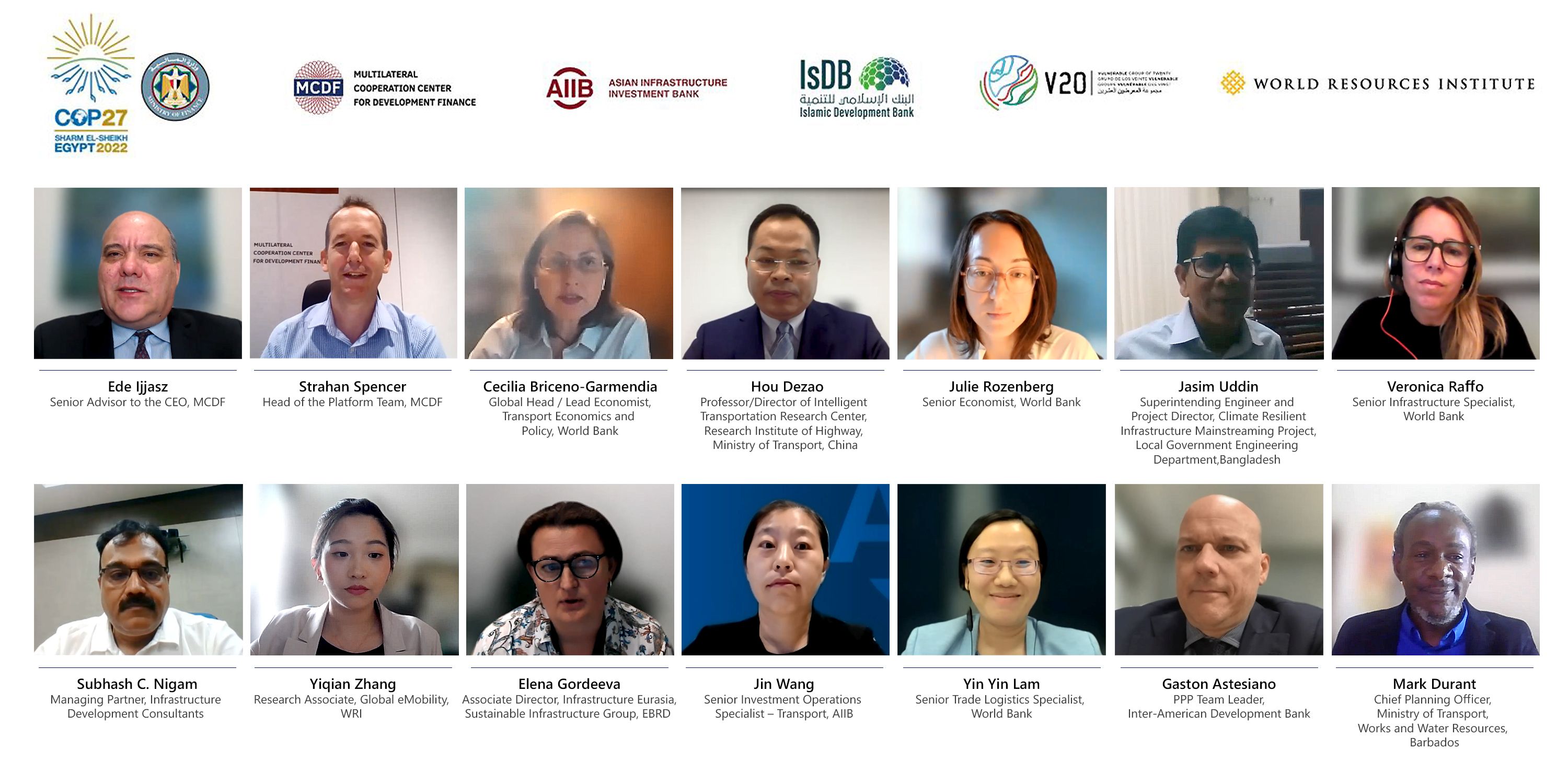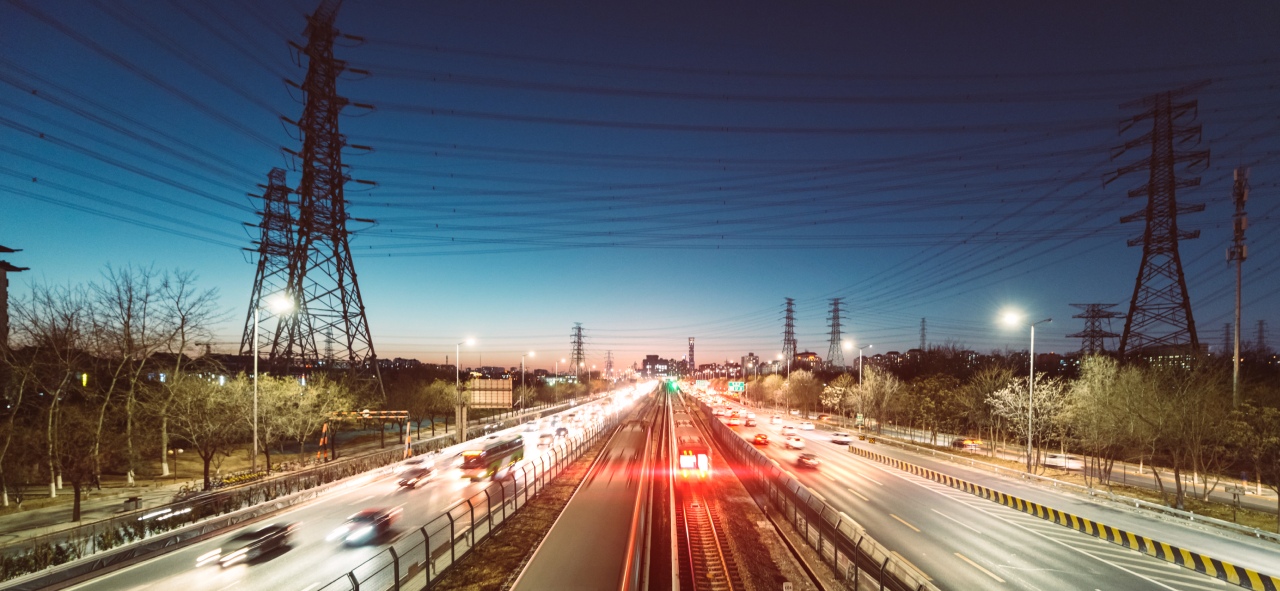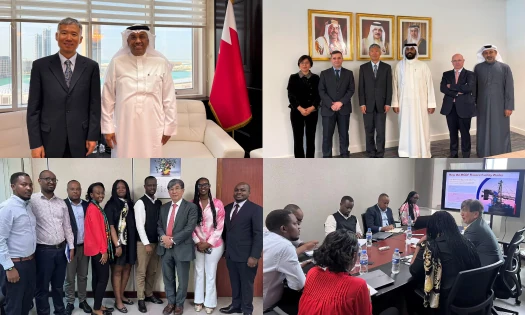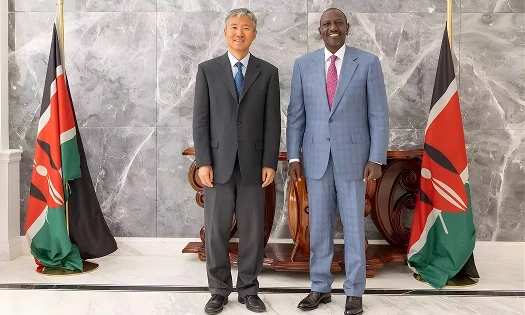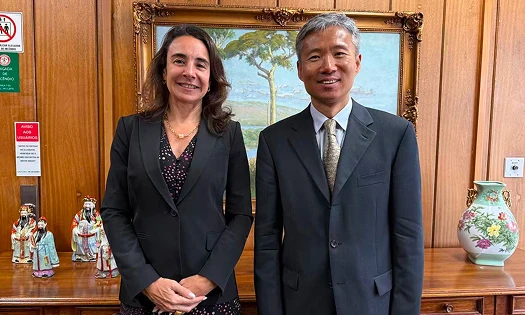The third in a five-part series of climate smart workshops by the Multilateral Cooperation Center for Development Finance (MCDF) highlighted the perils and potential of land transport in dealing with a warming planet. A key finding of the two-day workshop last week was the need for a systematic approach in bolstering transport links to improve developing countries’ ability to adapt to climate shocks and recover when disaster strikes.
A diverse panel of experts also explored how to decarbonize road and rail links during the workshop, which attracted 128 participants from 36 countries. The virtual gathering was the third in MCDF’s five-part Workshop Series on Climate Smart Connectivity Infrastructure – the Road to Sharm El-Sheikh.
MCDF and Egypt’s Ministry of Finance is collaborating in the workshop series with the Asian Infrastructure Investment Bank (AIIB), Islamic Development Bank (IsDB), Vulnerable Twenty (V20) Group, World Bank and World Resources Institute. The workshops are designed to build momentum for climate action in connectivity infrastructure projects before the UN Climate Change Conference (COP27) in Egypt from 6 November.
Many of the speakers emphasized the urgent need to integrate climate planning into transport infrastructure, as the road and rail links being laid now will bear the brunt of increasingly severe climate shocks 20 to 30 years later.
This requires countries to take a greater inter-agency approach than is occurring presently, such as by linking the planning work of separate government ministries handling transport and climate change.
While there will not be enough money or concrete to completely safeguard land transport from future climate shocks, protecting natural ecosystems - such as bolstering mangroves and forests which act as upstream watersheds - will play a key role in diminishing future harm.
While building climate resilient infrastructure is important, so too is to is the need to enhance preparedness. This requires financial outlays to be set aside in advance for carrying out maintenance and repair when floods and other climate extremes overwhelm transport links.
The workshop also found that in considering climate costs to land transport we should think about the implications beyond the immediate damage to roads and railways.
Disruptions to transport infrastructure is already costing business firms USD 107 billion annually, including lost time through traffic congestion and the need to increase inventories when supply lines between production sites and consumers are constrained. The good news is that while businesses need to keep a close eye on managing climate risks, calculations suggest each USD 1 invested in infrastructure resilience equates to a net future benefit of USD 4.
Shifting current modes of transport to less carbon-intensive paths is a prerequisite to scaling back the climate threat. Transport is the second fastest growing sector contributing to emissions after industry, with transport demand set to double by 2050.
While the transition to low-carbon and climate-resilient transport is challenging, speakers presented real life examples of how progress is being made in Bangladesh, Barbados, Brazil, China, Georgia, India and Viet Nam.
A number of participants spoke of the benefits of combining electrification with a move to expanding public transport. This includes reducing air pollution and enhancing energy security, which can protect domestic financial systems from global fluctuations in fossil fuel power prices.
In some cases, such as in Viet Nam, the solution lies in improving the climate-smart aspects of transport by augmenting road and rail links by returning to the traditional use of inland waterways to ferry goods and people.
The next MCDF climate smart workshop, scheduled for October, will focus on energy. Learnings from the four workshops will then form the basis of a co-hosted Climate Finance Day event at COP27 on 9 November.
Keep an eye on the MCDF website to learn more about our workshop series. And feel free to contact secretariat@themcdf.org if you would like to join upcoming workshops or access resources from past workshops hosted on our JIGSAW platform - MCDF’s novel digital tool which shares information between stakeholders focusing on high-quality infrastructure and connectivity.
